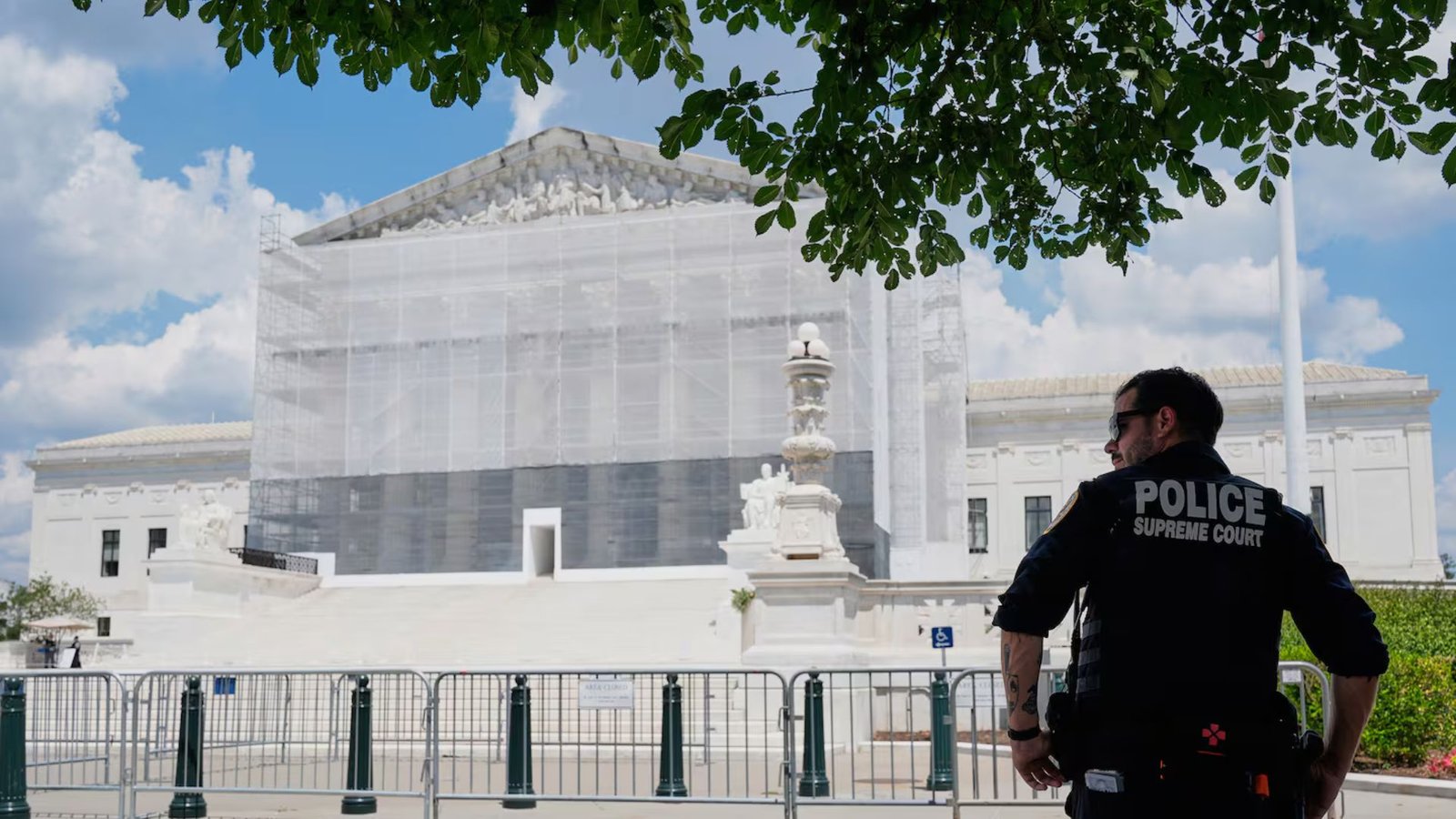The U.S. Supreme Court recently made a significant decision that impacts how courts can issue nationwide injunctions, particularly in a case involving birthright citizenship. This ruling clarifies the scope of judicial power and aims to balance fairness in legal proceedings. In this article, we’ll break down the decision in simple terms, explain its implications, and provide context for why it matters.
What Is a Nationwide Injunction?
A nationwide injunction is a court order that stops a law, policy, or government action from being enforced across the entire country, not just in a specific area or for specific people. These orders are powerful because they can halt federal policies instantly, affecting millions of people. However, they’ve been controversial, as some argue they give too much power to a single judge.
In the recent case tied to birthright citizenship—the constitutional right to U.S. citizenship for anyone born on U.S. soil—the Supreme Court ruled that lower courts should limit the use of nationwide injunctions. The decision doesn’t change birthright citizenship itself but focuses on how courts handle legal challenges to it.
Background of the Birthright Citizenship Case
The case arose from debates over birthright citizenship, which is guaranteed by the 14th Amendment of the U.S. Constitution. This amendment states that anyone born in the United States is automatically a citizen, regardless of their parents’ status. Some groups challenged this principle, arguing it encourages illegal immigration, while others defend it as a core American value.
A lower court had issued a nationwide injunction to block a proposed policy that would limit birthright citizenship. The Supreme Court stepped in to review whether such a broad injunction was appropriate. Their ruling focused on the scope of the injunction, not the citizenship issue itself.
Key Points of the Supreme Court’s Ruling
The Supreme Court’s decision sets new guidelines for when and how nationwide injunctions can be used. Here are the main takeaways:
| Key Point | Explanation |
|---|---|
| Limits on Nationwide Injunctions | The Court ruled that nationwide injunctions should be used sparingly. They are only appropriate when a policy’s impact is truly national and affects everyone in the same way. |
| Case-by-Case Approach | Judges must now consider narrower solutions, like regional or individual injunctions, before issuing a nationwide one. |
| Judicial Restraint | The ruling emphasizes that courts should avoid overstepping their authority by halting policies across the entire country unless absolutely necessary. |
| No Change to Birthright Citizenship | The decision does not alter the 14th Amendment or birthright citizenship. It only addresses how courts can respond to challenges. |
Why This Ruling Matters
This decision is a big deal because it changes how courts can influence national policies. Nationwide injunctions have been used frequently in recent years, especially in cases involving immigration, healthcare, and environmental regulations. By limiting their use, the Supreme Court aims to:
- Reduce Judicial Overreach: Prevent a single judge from stopping a policy that affects the whole country.
- Encourage Consistency: Ensure that legal challenges are handled fairly and uniformly across different courts.
- Promote Balance: Allow the government to implement policies while courts review specific issues, rather than halting everything.
For the birthright citizenship case, the ruling means that any future challenges to the 14th Amendment will likely face stricter scrutiny before a nationwide injunction is issued. This could lead to more localized or targeted court orders instead.
Implications for Birthright Citizenship
While the ruling doesn’t directly change birthright citizenship, it could affect how future legal battles over this issue play out. For example:
- Narrower Court Orders: If someone challenges a policy on birthright citizenship, courts may issue injunctions that only apply to specific regions or individuals, not the entire country.
- More Legal Challenges: The ruling might lead to more lawsuits in different regions, as opponents of a policy may need to file cases in multiple courts.
- Policy Debates Continue: The decision keeps birthright citizenship intact but doesn’t resolve the ongoing political and legal debates about it.
How This Affects the Public
For everyday Americans, this ruling might seem technical, but it has real-world effects. Here’s how it could impact you:
- Immigration Policies: Challenges to immigration laws, like those affecting birthright citizenship, may take longer to resolve because courts will need to issue more targeted rulings.
- Government Efficiency: By limiting nationwide injunctions, the government may face fewer delays in implementing policies, which could affect areas like border security or public services.
- Legal Fairness: The ruling aims to ensure that one judge’s decision doesn’t override the entire country’s legal system, promoting fairness.
Broader Context of Nationwide Injunctions
Nationwide injunctions have been a hot topic in recent years. They became more common during disputes over policies like travel bans, environmental regulations, and healthcare reforms. Critics argue that these injunctions allow a single judge to wield too much power, while supporters say they’re necessary to protect people from harmful policies.
The Supreme Court’s decision reflects a growing concern about the overuse of nationwide injunctions. By setting stricter guidelines, the Court hopes to create a more balanced legal system where lower courts play by the same rules.
What’s Next?
The ruling doesn’t end the debate over birthright citizenship. Political and legal battles over the 14th Amendment are likely to continue, especially as immigration remains a divisive issue. However, courts will now have to be more cautious about issuing nationwide injunctions, which could lead to more localized or incremental legal outcomes.
For now, birthright citizenship remains unchanged, and the Supreme Court’s focus on limiting injunctions ensures that future challenges will be handled with greater precision. This decision is a reminder that the judiciary plays a critical role in balancing individual rights with government authority.
Conclusion
The Supreme Court’s ruling on nationwide injunctions in the birthright citizenship case is a landmark decision that reshapes how courts can intervene in national policies. By limiting the use of nationwide injunctions, the Court aims to prevent overreach and ensure fairness in the legal system. While the decision doesn’t alter birthright citizenship itself, it sets a precedent for how future challenges to this and other policies will be handled. As debates over immigration and citizenship continue, this ruling will influence how courts navigate these complex issues, ensuring that justice is applied thoughtfully and consistently.
FAQs
What is a nationwide injunction?
A nationwide injunction is a court order that stops a law or policy from being enforced across the entire country. It’s issued by a single judge and can affect millions of people.
Does this ruling change birthright citizenship?
No, the ruling does not change birthright citizenship or the 14th Amendment. It only limits how courts can use nationwide injunctions in legal challenges.
Why did the Supreme Court limit nationwide injunctions?
The Court believes that nationwide injunctions give too much power to a single judge and can disrupt government policies unfairly. The ruling encourages narrower, more targeted court orders.
How does this affect immigration policies?
The decision could slow down legal challenges to immigration policies, as courts may issue regional or individual injunctions instead of nationwide ones, leading to more localized outcomes.
Can nationwide injunctions still be used?
Yes, but they will be harder to get. Courts must now justify why a nationwide injunction is necessary and consider narrower options first.










